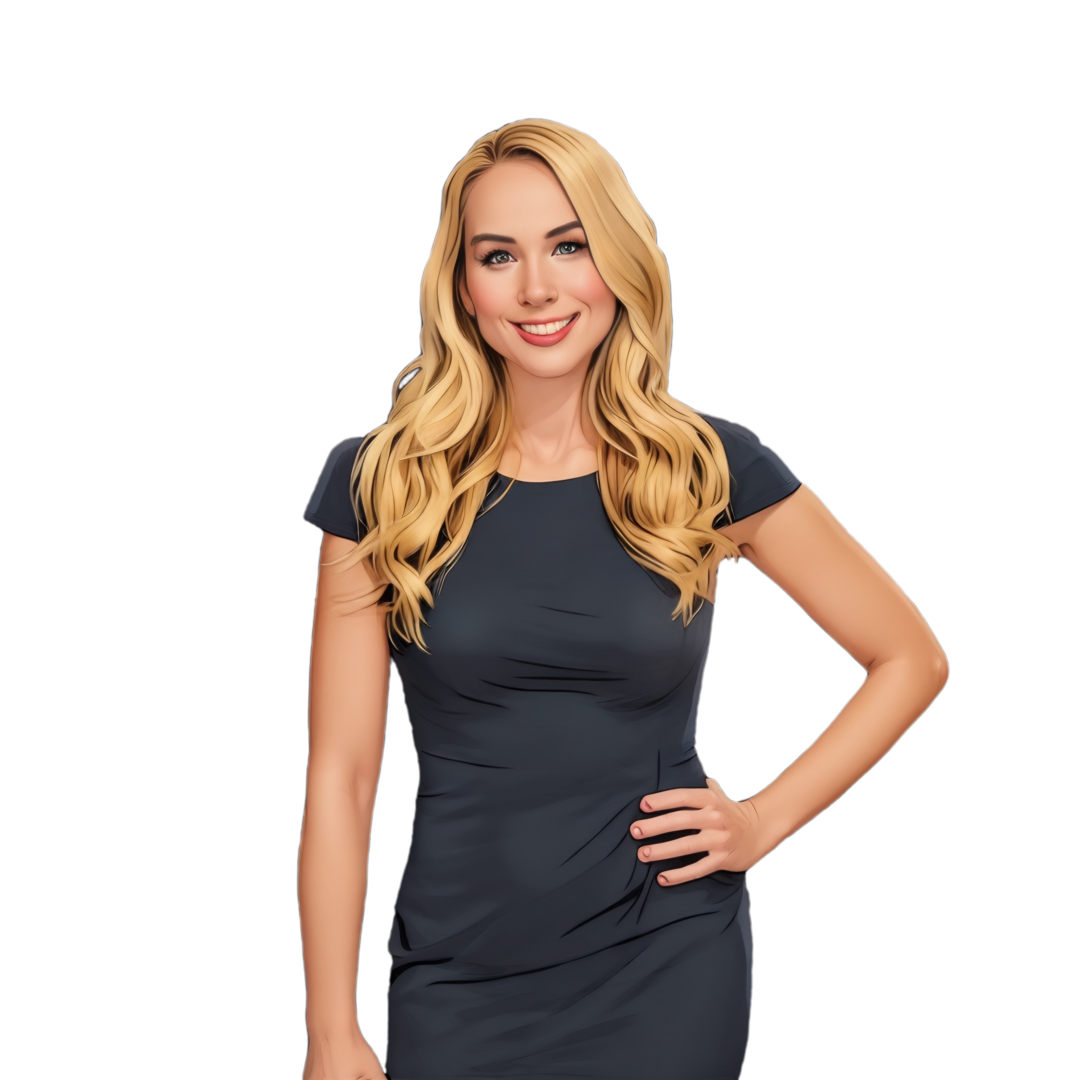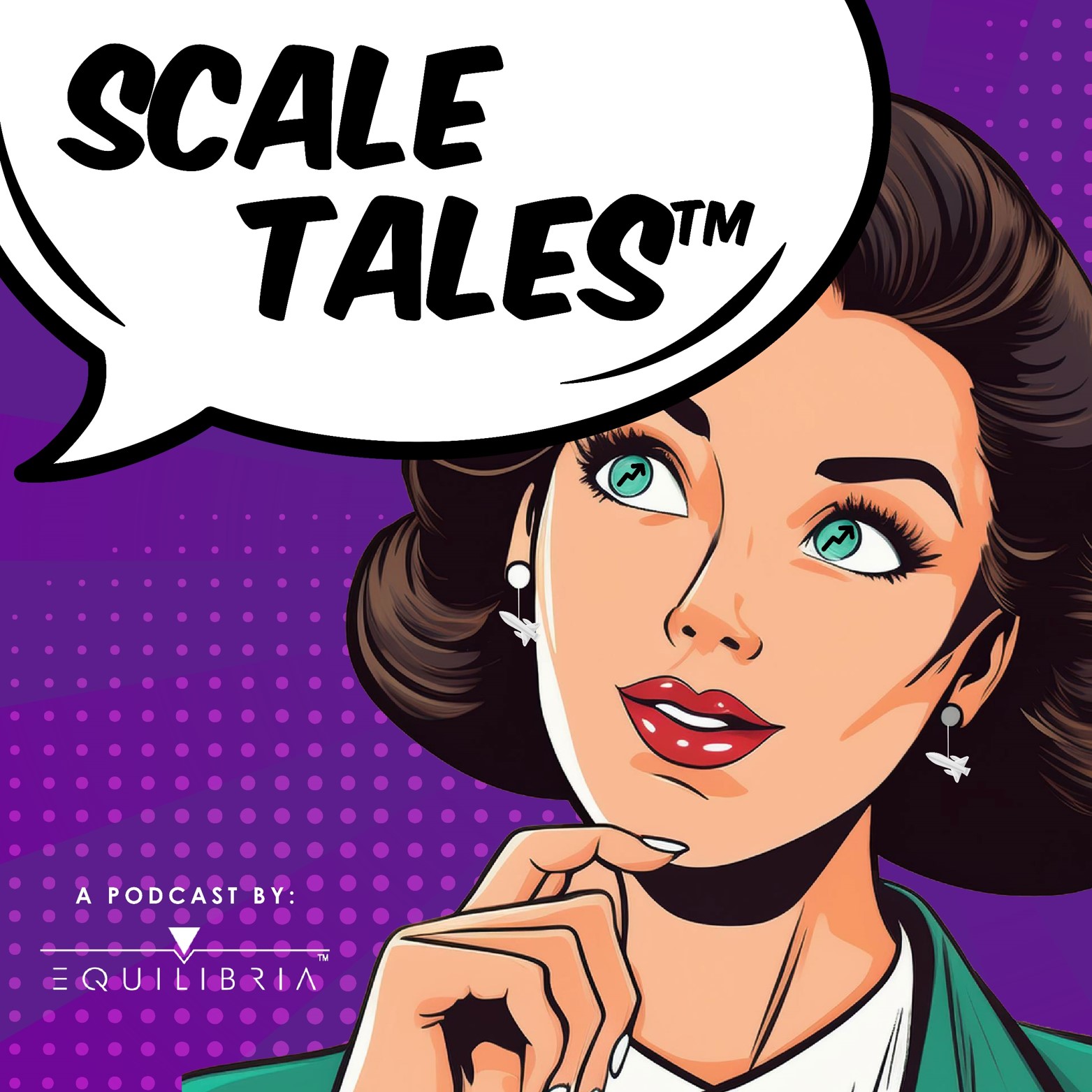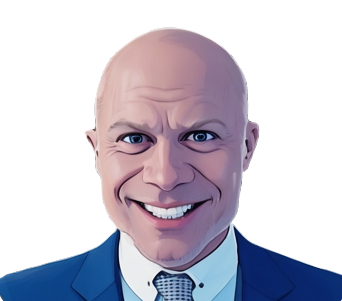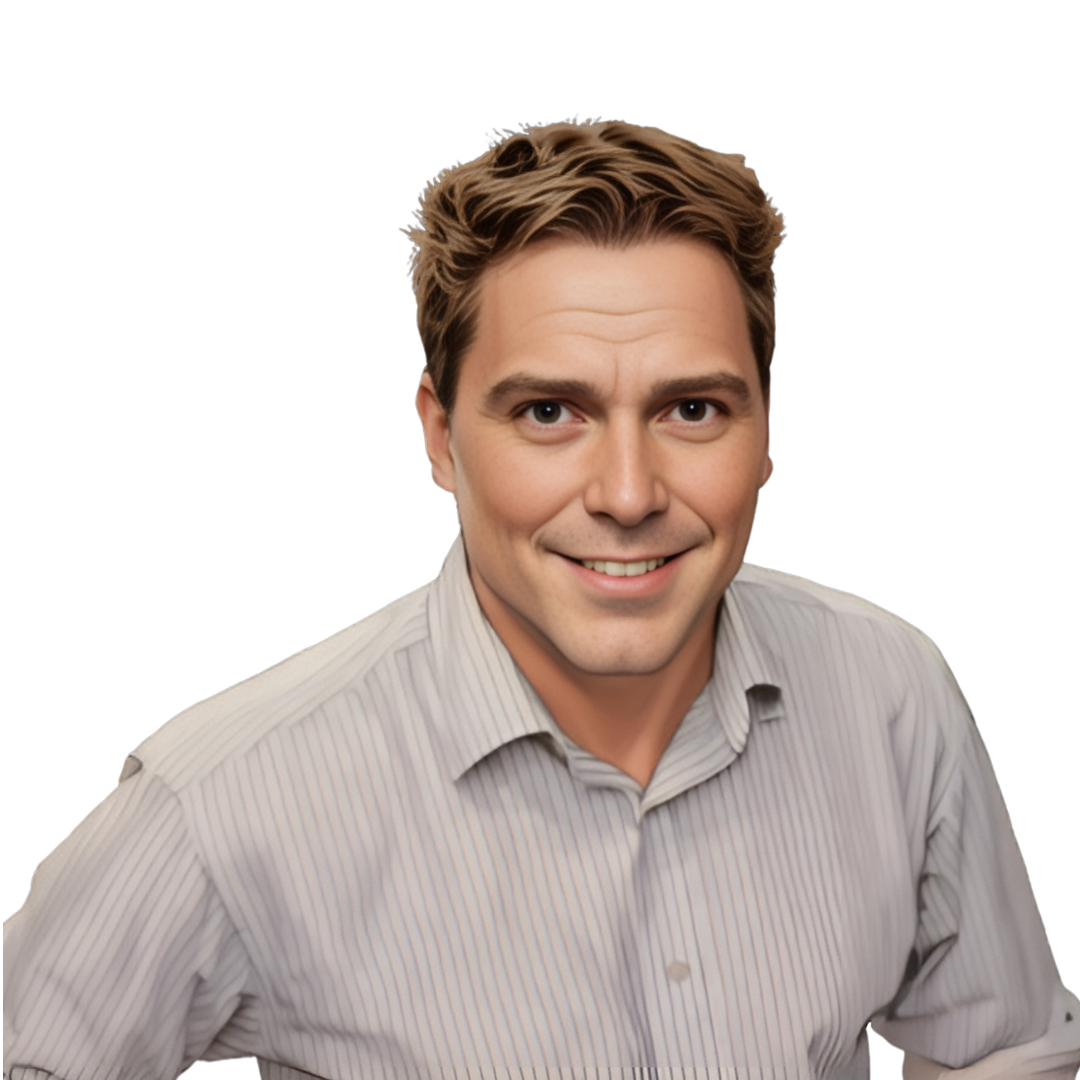Transcript
This episode is brought to you by Equilibria, Inc. Equilibria provides training to assist fast-growing companies in documenting and improving their key processes for maximum operational performance. Visit EQBsystems.com to learn more. That’s EQBsystems.com.

This is Scale Tales – the business storytelling podcast where entrepreneurs, executives and experts share firsthand accounts of that magical moment when consistent, quality work intersected with the ability to increase output without increasing costs.
I’m Alicia Butler Pierre, host and producer of Scale Tales as well as your guide as we learn from another highly ambitious entrepreneur just like you and how she achieved extraordinary results in her business.
What does it take to become a part of the elite top 1% of performers in your industry? Experience isn’t enough. It takes a certain type of grind, tenacity, and resilience that, honestly, most people aren’t willing to endure. As you’re about to find out from our next guest, the path to the top 1% does not include shortcuts and certainly does not come without obstacles.
This is Ep. 10: How Kathleen Black Positioned Herself in the Top 1% of North America’s Realtors.

Kathleen Black is the owner and CEO of Kathleen Black Coaching and Consulting, based in Toronto, Canada. She has the distinction of North America’s leading real estate team coach and trainer. In fact, 80% of her clients are national top 1% producers. In other words, she knows how to scale, and you have the benefit of learning how she does it.
I got involved in real estate initially because I was working on buying investment properties with my ex-husband, and we would essentially a lot of sweat equity. We would flip them and turn them into multi units. And eventually the frustration of that kind of led to him saying, “Get your real estate license.” And I really didn’t want to ironically. I had two little kids, I was really busy with helping with the properties and managing them and tenants and all that fun stuff. And we were growing pretty quickly.
And eventually I gave in, I got my license, and I went through a very messy separation. So I went from having a husband who was the main breadwinner, and we had these projects on the side to everything frozen and being brand new, licensed in real estate. I had the opportunity to go back to managing dental offices, which is something I used to do, and that it seemed, on the surface like maybe a safe move to go back to something like that.
But in reality, safety would have cost me a lot. So instead, I invested and took a risk on real estate. I actually sold 47 houses my first year in the business. And Toronto real estate board is the biggest board in the whole world, actually, not just North America, but internationally. And that first year, based on production, I was top 1%.

So, Kathleen left the safety of managing dental offices to venture into the unknown world of real estate. And it worked! But how did she transition from being a realtor to coaching other realtors?
Yeah, initially, I mean, it’s kind of funny always in retrospect, right when I look back, I mean I worked at Canada’s biggest dental office. They had more providers than anyone else, which means, you know, they had all these different hygienists and specialists and dentists and we had these massive schedules and what I worked with was systems and scripts and how to make sure our schedules stayed intact and replace any appointments that didn’t show up and kind of keep everybody moving so that things worked well.
So ironically, I already had that background and when I got into real estate, I was with a team right within the first week, you know, they were putting some new scripts in place that because of the dental office, I had experience on. I think it was a combination of a few things. I mean, my background, my degree is in psychology and women’s studies, which gave me a really systematic approach, but also just loving to see how to help people tick because I always wanted to know how to get myself to tick better, right, and do better.
So, the team I was working with was putting together a coaching company which was the first team-specific coaching company in the real estate industry in Canada. I don’t know when or where it was in the U.S., but at that time I got involved in it very, very quickly and essentially there were three owners and the three owners wanted to part ways and it led to kind of a fire sale opportunity. And you know, some would say maybe I didn’t know better, but I think to me it was just too great of an opportunity to pass down even though no one else wanted it. But I did. So I took on a struggling coaching company.
I started coaching within 18 months of selling actively. So it was a very quick transition and then I took a couple years to move into it full time for sure. I left and sold my shares to the first company and I built this company. Some people might say it was a train of unfortunate events for other people that led opportunities. But, you know, like some also say that I took on some major problems to solve, but I got to learn a lot, you know, and I got paid to learn, so I’m happy for that.
And solving major problems played a huge part in giving the Kathleen the experience she needed to not only position herself as a top 1% realtor, but to help her clients and their real estate teams get there too. I was curious about when she realized she could package her knowledge on how to scale and teach it to others.
I think I was lucky in that the first company that I took over, we were known for helping teams. I think some people think that we work with existing teams. But to be honest, the reason I really knew we had something is because initially. We were working with individual producers and we helped them build, like step-by-step and scale the businesses. So it was literally step one. Here’s the system. Let’s implement it, let’s test it, let’s make it better, maintain it. And then we already know our vision for step two.
So that led to building some of the biggest teams in Canada and North America. And that’s where I think it really was a beautiful progression because it’s one thing to have a team in place and help them slowly move towards some new frameworks because the culture is there, the team’s there, their systems there. But it’s really amazing to see how all the pieces play out. When you can build from scratch. That’s a beautiful thing. So when we saw that growth, it was kind of a third-party testament to what we do.
And to this day, I mean, our teams, like in the real estate space, what a traditional team gets after the cost of sale, for example, our teams consistently get 16% more. So on the outside, it’s always, Well, they’re lucky or They were working harder. But they’re not. They have an edge on every system because we know the minimum performance and if they’re not getting it, we know how to tweak it so that they can have a pretty strong foundation to grow. I think as leaders, it’s always hard to see ourselves. There’s still clients who I’m too intense for and I’m too systematic and strategic, and that’s why I have a team I work with.
That system that Kathleen is speaking of has a name. It’s called the KBCC Ultimate Expansion Strategy.
Over the years, I just identified that everybody had to go through certain steps. As a leader, they had to know where they wanted to go and why. They had to know their own personal genius, and they also had to know the areas that were potentially holding them back. We don’t want to just build teams. We want to build the most efficient, most productive, most profitable teams in the world in at least in the real estate space housed in performance cultures.
We want to power people up because we know when people are empowered, systems are easy. When they’re not clear, they’re not empowered, they’re not confident. They struggle with it. They don’t implement the way that they need to. I think there’s so many misconceptions about top performers. Like, there’s so many ideas of, I can work as hard, but I can’t get there. But in my experience, the truth is, 98% to 99% of people are not willing to do what the top 1% is doing. The path is there. They aren’t necessarily taking it.
I believe we’re well into the wisdom era. The intellectual property is there, the idea of making something from scratch today in a sales and service business.
Did you hear that? The path is there. But you must be willing to put in the work. Coming up after the break, Kathleen will share more behind-the-scenes details of how she scales the teams she works with, including her tips for building high-producing teams.
Some small businesses fail not from the lack of customers, but from too many. When your business receives positive publicity, it’s exciting! The spotlight attracts more customers and the cash flows in. But too much growth too soon can be catastrophic especially if your organization lacks the business infrastructure to support this growth.
Behind the Façade: How to Structure Company Operations for Sustainable Success is a book that introduces a proven framework for building business infrastructure. The book is structured into six relatable stories of entrepreneurs who apply this framework, giving you an inside look at how they solve their fast growth issues and how you can too! Pick up your copy today at BehindtheFacadeBook.com. BehindtheFacadeBook.com.
Have you heard the expression, “Teamwork makes the dream work?” As demand for your products or services grows, so will your need for a team. How do you build a scalable team that can function without you? Listen as Kathleen Black explains.
I had a great opportunity when I started this company because I had the lessons and the experience of working with my prior company. So when I came here, I did structure things a little bit differently, for sure. I model exactly what I teach, and I think that’s really important because in my space, there’s a lot of coaches who are the only person, they’re great thought leaders, right?
But when you’re looking to scale a team and you’re constantly talking to one face, one voice as your thought leader, it can really reinforce to you exactly what you don’t want. Because if you’re trying to scale your business, you want to be able to empower other people with your messages or delivering the client process that creates the result, because the client’s not paying for you, they’re paying for your results. But most people can’t get out of that. So we were really conscious of that when we came here.
I started this business, so I filled up really, really quickly, and because it was a brand new company and I was just getting my bearings, rebuilding from the last one, we actually started out really humbly. I was doing everything, and I ended up to get a co-op student. And because I’m pretty good at empowering people to take responsibility and do a great job, I kind of threw this co-op student into creating our monthly billing with PayPal and our systems and our email, I had a basis from the prior company, so I wasn’t taking fully from scratch, but we ended up to hire on that administrative role.
She was fantastic. And then we brought on a second marketing implementer, somebody who could just be organized with our marketing and event. Another coach was my second hire. My third hire was somebody to support with marketing. Then eventually we got off site consulting because we work with Infusionsoft, which I always say is just a monster of a program. It does what we need it, but it’s not, in my opinion, super user friendly.
Sounds like Kathleen’s hiring strategy involves a combination of part-time, full-time, and outsourced people.
To me it was, Okay, here’s the next step. Here’s what we need to get done. Here’s the budget. How can I find the people who know how to do this and can work with our team? I’m always thinking based on where we’re going. So my team’s really used to this. On our meetings, we’re constantly talking about, Who’s going to be here in the future? What’s that person going to do? Have we set up our plan? So, it’s almost like we’re creating a space for them before they’re there. And I think it’s been the same thing all the way through.
For me, it’s been really vital to have a very strong right-hand implementer who’s an operational mindset and personality. That’s been massive for me, to be able to be out and speak and be front facing all the time and not have to worry about payments and processing and just all the logistics I needed that. That’s most important for me, so that I can really like jump off that cliff so we can grow. I think that’s our most important person.
I’m in full agreement with Kathleen. While you may be front-facing, as she described herself, you’ll need that strong person to handle the back-office operations.
I was having a chat with somebody else who runs an extremely successful coaching business in the real estate space as well. But they work with a different aspect of like brokerage owners. It was interesting because he said, ”You’ve done it, like you’ve created the machine it’s in place.” And I said, “Yeah, but machines break and then you make them better. You create the machine until you break it. Like that’s just how it goes, right?
So I think many times along the way the machine has broken. Like I’ve tried to bring in at times Director of Coaching who brought on coaches but didn’t train them, they didn’t see the systematic vision needed to scale the company. They could only see the next step. They couldn’t see how doing the next step at a lower level is going to sabotage the step after. And for me, everything should build you to the next step, right? So if it doesn’t allow you to grow, you’re going to be capped later.
The way we onboard coaches now, the way we identify genius in our coaches is night and day from five years ago. And that was from just wanting to improve it, you know, in real estate with team leaders.
I was on stage one day, actually when it clicked in for me and I was saying you have to understand that you have this huge advantage that you don’t even see when you’re recruiting. Because I was saying, as an agent, most of these top producers, they were their admins, they were everything just like me, right? They went through what I did, building the business and not even in real estate, I mean, just building this business, they were doing absolutely everything.
So when they think of recruiting an agent, they’re thinking, Oh, my gosh, I have to train them and they’re going to be so busy. When they’re coming into a well-organized team that already has, you know, admin, it has marketing, client support, it’s got so many other aspects, really. If you have a very organized team, you’re training that sales agent on 30 or 40% of what a typical agent needs to know. So you’re taking that 30 or 40%. It’s so much easier to get them at a mastery level and help them to outperform you.
You have such an edge in doing that. And it hit me on stage, I was like, that’s exactly what I need to do with my coaching business. And I completely changed my method because, you know, as I’ve never coached, that you could take all your genius as a leader and transfer all of it and all your experience to another person and you can do it way quicker than it took you, but it’s still going to take a lot of time.
However, what we can do is take a certain area of your genius where another person has even a better aptitude for it than you and now they’re going to deliver even higher. So I used to train all the coaches on the full system, on all the intellectual property. I used to see our genius as transferring knowledge and now I understand that it’s retrieval of knowledge, but it’s also having experts in certain areas so they can take that 40% and deliver it at their 100% capacity. And now they can exceed me every time, which makes me really, really happy.
Having a team that not only functions without you but may actually exceed you requires maturity. Remember earlier when both Kathleen and I mentioned there are some things that people who reach the top 1% are willing to do that others aren’t? Well, this is one of those things. Empowering others means letting go to grow.
When you go to scale and help other people, that ego can cost us everything because it’ll blindside us. I’ve worked with clients over the years who were letting their weak spots outperform their strengths. And it really took an adjustment of mindset to see, Okay, I need to stop sabotaging my amazingness with weak spots, and then I need to also help my other team members not to do that. In my experience, it’s that shift into looking and empowering genius that really helps people build out their teams.
And part of building out your team is making sure they have the proper tools to facilitate productivity, efficiency, and scale. I asked Kathleen about the tools that she and her team use.
for us, Infusionsoft is our entire communication system, it’s our billing system. It integrates with all of our sales funnels, all of our offers on our website. So it truly is the hub of all the moving pieces. It integrates with Asana for our project management.
We have a members-only vault which helps us to house all of our content and have extra resources. We have different coaching levels, so different people get different resources based on their needs, but also so that they’re not overwhelmed and they know the key next steps instead of everything,
There’s so many moving pieces in the business right now. My goal has been to set up and empower every department of the business as their own business within the business. So we are very collaborative. We are nothing, top-down management in any way. I have a leadership team. It’s all women right now, but each have a department. They know they’re 100% responsible for their departments. If they need help or strategy, they’ll ask for it. But the buck stops us at them. Like, we’re very entrepreneurial, and I think that’s what’s helped us to grow a lot. So each department has its own goals and strategies and resources and plans, and that’s allowed us to get ahead. Right. Instead of recreating the wheel all the time.
I like that idea of treating each department as a “business within the business.” Here’s a recap of other lessons learned from Kathleen:
- Get out of your comfort zone. Playing it safe and going with what’s familiar won’t necessarily stretch you and prepare you for greater opportunities.
- Be careful who you get advice from. Pay for a coach based on the results you can get and not based on a coach’s fame or personal brand.
- Retrofit best practices from other companies you may have started or worked in and apply them to your current business
- Be creative in your hiring strategy. Consider hiring interns and co-ops to save money.
- Delegate tasks to your team and empower them to make decisions.
- Always talk about what the future looks like. It’s your north star.
- Have a strong #2; an implementer who can manage back-office operations.
- Package your knowledge into a framework and train others.
- Beware of your ego it is a sure-fire way to destroy growth and scale.
A special thank you to Kathleen Black for sharing her scale tale. Check out her two books, The Top 1% Life and Relentless to Rise. She also has valuable resources available on her website, including a free business assessment.
Visit us at ScaleTalesPodcast.com to access links to these resources as well as this episode’s show notes. Again, that’s ScaleTalesPodcast.com.
Thank you for listening! If you learned something valuable from this episode, please leave us a five-star rating and review wherever you’re listening.
I’m Alicia Butler Pierre and I produced and narrated this episode. Music production and original score by Sabor! Music Enterprises. Video editing by Gladiola Films. Show notes by Erika Ve Revilla.
You’ve been listening to Scale Tales, a podcast by Equilibria, Inc.









